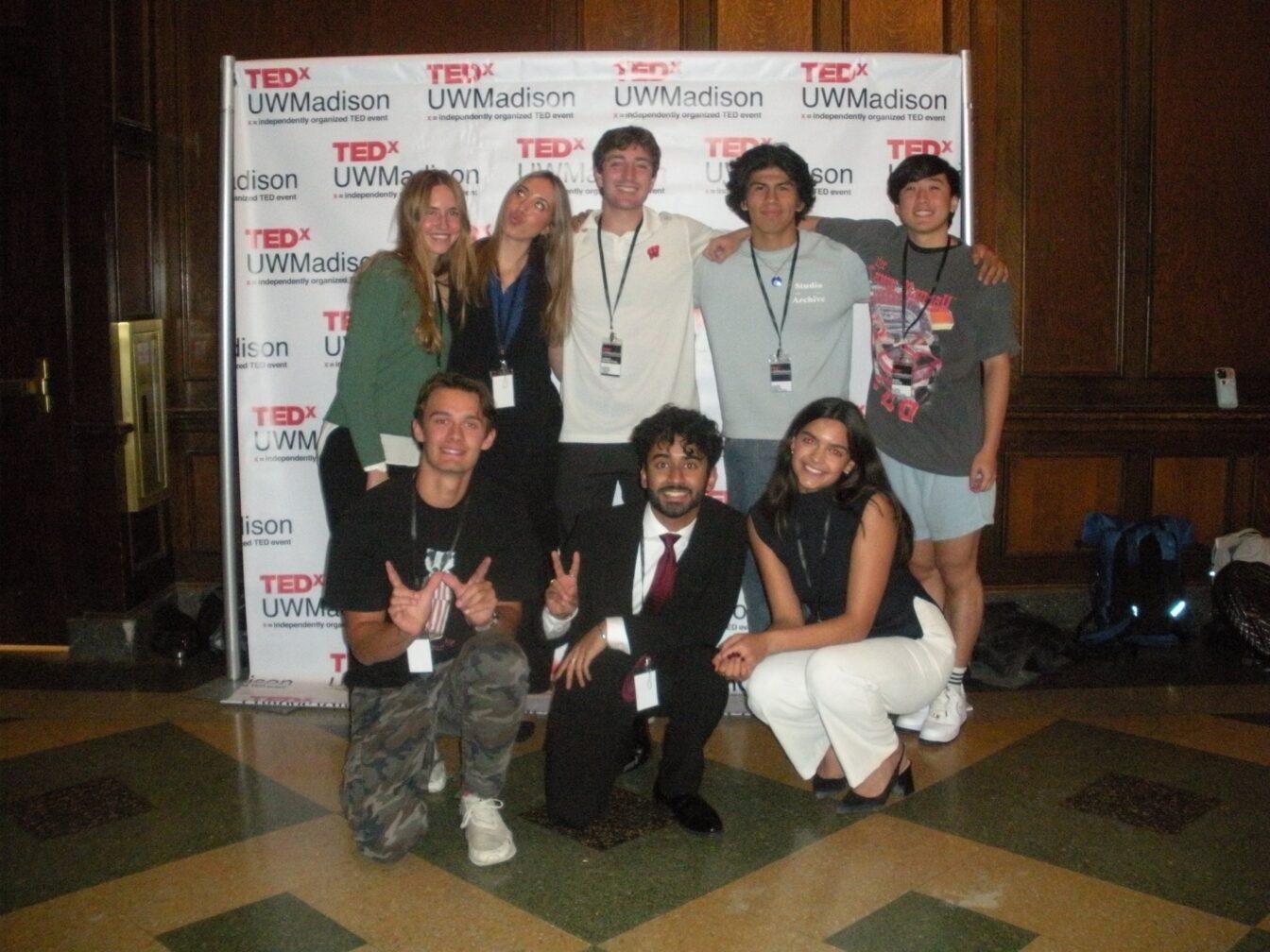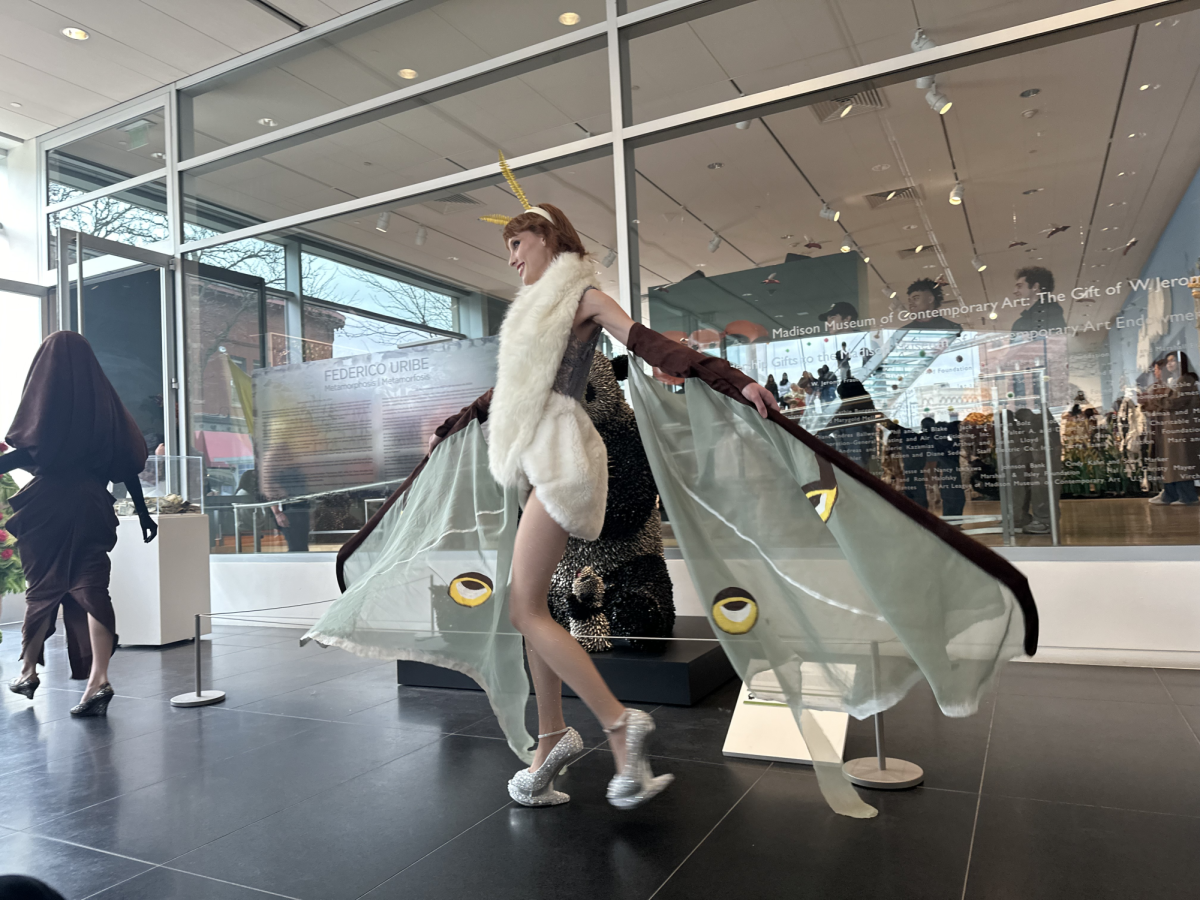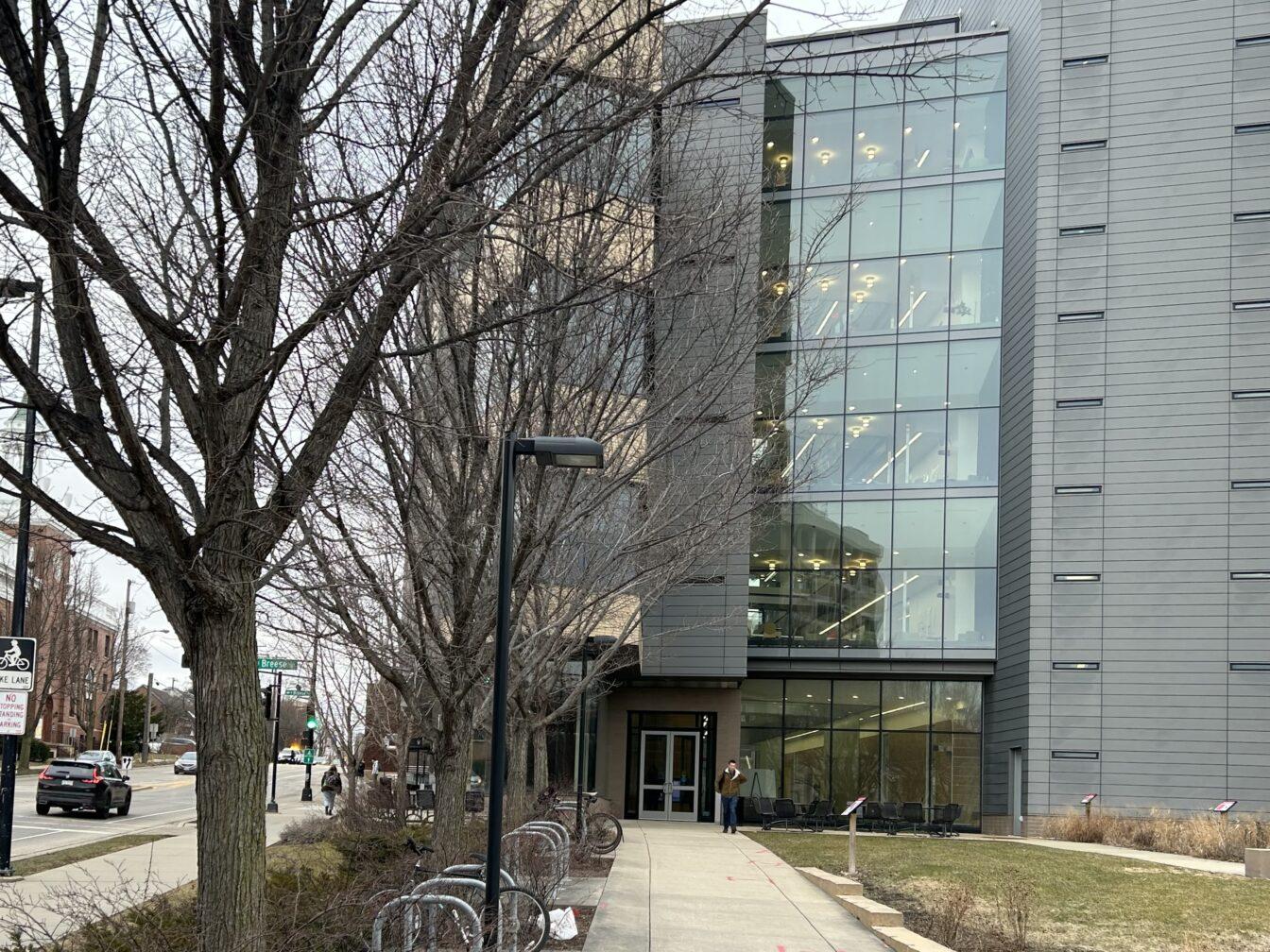President of TEDxUWMadison Melina Zarboulas organized five speakers for the University of Wisconsin TEDxUWMadison event Nov. 6. Students and faculty gathered at Tripp Commons to listen to Sharon Li, Martin Lichtman, Patrick McDaniel, Lori Mazor and Scott Rosen — all experts in AI.
The University of Wisconsin hosted its first talk since 2020 in the spring. While the 2020 talks revolved around life after the COVID-19 pandemic, this year’s talks highlighted the endless possibilities that await due to new advancements in AI.
Sharon Li is now Assistant Professor of Computer Sciences at UW, following the completion of her Ph.D. and postdoctorate at Cornell and Stanford, respectively. Li’s research investigates the algorithmic and theoretical foundations of safety when using AI in the open world, according to TEDxUWMadison.
UW professors weigh impacts of cannabis legalization on medicine, research
Li’s talk revolved around the research she conducts at UW focusing on achieving safety and practicality in AI when unexpected situations arise. She highlighted the egregious errors AI is capable of without proper preparation.
“Our ideal scenario is one where the AI system can recognize such unfamiliar situations and flag them for human intervention. It’s the key to ensuring safety and trust in the age of AI,” Li said during her talk.
Quantum mechanic Martin Lichtman focuses his research on quantum computing, according to TEDxUWMadison. Lichtman completed his doctorate at UW and followed it with post-doctoral research at the Joint Quantum Institute. Lichtman takes properties from the physical world and utilizes complex reality to solve complex problems.
In Lichtman’s talk, he explained the principles of quantum computing and how it enables a higher level of computing. Lichtman raved about examples of advanced computing, such as quantum simulation for solving complex problems in fields like chemistry and materials science. He embraces the importance of understanding what he calls “quantum perspective.”
Cheese-making organism may become state microbe, researchers say
“Is the math hard? Some of it, yes, but I’ll let you in on a little secret about quantum computing — it is the easiest possible subset of quantum mechanics, and that’s by design. We take a complicated natural system and engineer it down to just two energy levels so we don’t have to include all the rest in our calculations,” Lichtman said during his talk.
UW Tsun-Ming Shih Professor of Computer Sciences Patrick McDaniel’s extensive background includes serving as the program manager and lead scientist for the Army Research Laboratory’s Cyber-Security Collaborative Research Alliance for five years, according to TEDxUWMadison. His research spans computer and network security to technical public policy.
McDaniel provided a different perspective on AI in his talk by posing two key questions — whether adversaries can use AI and whether adversaries can exploit AI. He illustrated the functionality of AI while bringing to attention the challenges and vulnerabilities of AI.
“The uses [of AI] will be compelling and may solve things like hunger and disease and foster a renaissance in all areas of human endeavor. However, we need to think about when and how we use AI. We need to understand AI’s weaknesses, vulnerabilities and potential failures, as well as develop norms, public policy, and law to protect people and society,” McDaniel said in his talk.
Cybersecurity: Why do websites want me to accept privacy permissions?
Lori Mazor illuminated yet another route of AI challenges and opportunities with her experience as founder and CEO of Synthetivity, a consulting firm that teaches about Generative Artificial Intelligence. Synthetivity pioneered an intersection between AI and creativity. According to TEDxUWMadison, Mazor has an extensive background in business and architecture which has enabled an effective production of Generative AI.
Mazor’s talk took a humanitarian approach. She expressed the importance of understanding what AI can teach society about humanity. She used an analogy of temperature to illustrate how AI can operate in different environments or conditions and under different motivations.
“In computers, temperature has two polarities — cold is precise, hot is random. Algorithms act as a thermostat, dialing the operating temperature,” Mazor said in her talk.
Senior director at Getty Images Scott Rosen uses his creative skills from photography to help customers harness AI, according to TEDxUWMadison. He talked about how his photography career led him and others to turn to AI to find the best photos to tell customers’ stories.
Rosen also mentioned the darker side of generative AI — deepfakes, which are types of images or videos convincing enough to resemble real people but are not, propagating biases and stereotypes in images and image copyright issues. To avoid this, Rosen said it will still require human creativity.
“It takes skill and expertise to make AI content that is not derivative, that feels authentic and makes you have an emotional response,” Rosen said.
UW has been hosting TEDxUWMadison talks since 2012 and is proud to have hosted its second talks post-pandemic this fall. Past talks can be found on the TEDxUWMadison website.
















